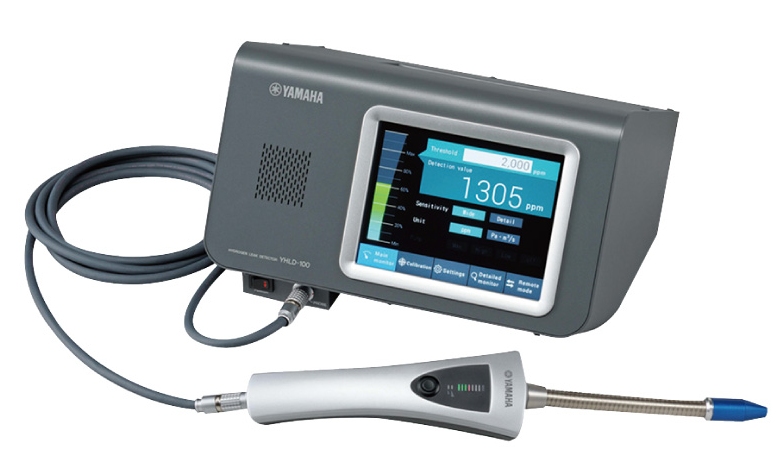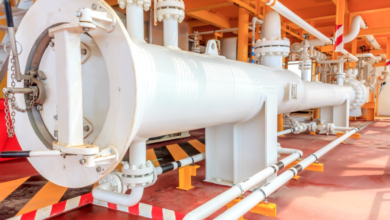Understanding The Role of Hydrogen Leak Detectors in Modern Technology

Hydrogen is rapidly becoming a cornerstone in the transition towards clean and sustainable energy. Its wide-ranging applications, from fuel cells to industrial processes, make it indispensable in today’s technology landscape. However, hydrogen is highly flammable and can be hazardous if leaked. This makes the use of a reliable hydrogen leak detector vital for safety and operational efficiency in many industries.
The Importance of Detecting Hydrogen Leaks
Hydrogen is a colorless, odorless gas that is extremely flammable. Because it is lighter than air, leaked hydrogen tends to rise quickly, which can sometimes make leaks difficult to spot. Without proper detection, even small leaks can lead to dangerous explosions or fires, threatening both people and equipment. A hydrogen leak detector provides early warning signs, allowing corrective measures to be taken before an incident occurs.
See also: How Technology is Transforming Logistics in Hong Kong
How Hydrogen Leak Detectors Work
Hydrogen leak detectors come in various types, each utilizing different detection technologies to sense the presence of hydrogen gas.
Electrochemical Sensors
Electrochemical sensors detect hydrogen through chemical reactions that generate an electrical current proportional to the hydrogen concentration. These sensors are known for their accuracy and sensitivity but require regular calibration to maintain performance.
Catalytic Combustion Sensors
These sensors detect hydrogen by oxidizing the gas on a heated catalyst surface, generating heat that is then measured. They are widely used for combustible gas detection but may be affected by contaminants that “poison” the catalyst.
Semiconductor Sensors
Semiconductor sensors detect changes in electrical resistance caused by hydrogen interacting with the sensor surface. They offer quick response times and are relatively low cost, but can be less selective and may respond to other gases.
Optical and Infrared Sensors
More advanced hydrogen leak detectors use optical technologies like infrared absorption to identify hydrogen concentrations. These sensors provide precise and rapid detection but tend to be more expensive.
Key Features to Look for in a Hydrogen Leak Detector
When choosing a hydrogen leak detector, several factors should be considered to ensure suitability for the specific environment and application:
- Sensitivity and Detection Range: The device should detect hydrogen at low concentrations to provide early warnings.
- Response Time: Rapid detection can be critical in preventing accidents.
- Durability and Environmental Resistance: Detectors should withstand harsh industrial conditions such as humidity, temperature variations, and corrosive substances.
- Alarm System: Visual and audible alarms improve safety by alerting personnel immediately.
- Portability: For on-site inspections and maintenance, portable detectors offer flexibility.
- Maintenance Requirements: Easy calibration and maintenance increase long-term reliability.
Industrial Applications of Hydrogen Leak Detectors
Hydrogen leak detectors are essential in various industries due to the increasing use of hydrogen gas.
Energy and Fuel Cells
Hydrogen-powered fuel cells are becoming more prevalent in vehicles, backup power systems, and renewable energy storage. Leak detectors ensure the safe operation of fuel cell stations and equipment.
Chemical and Petrochemical Industries
Hydrogen is a common element in refining and chemical manufacturing. Leak detectors protect workers and infrastructure by monitoring pipelines, storage tanks, and reactors.
Manufacturing and Research Facilities
Factories and laboratories working with hydrogen need continuous monitoring to prevent accidental leaks, ensuring compliance with safety standards.
Residential and Commercial Use
As hydrogen technologies enter commercial and residential sectors—such as heating systems and vehicles—hydrogen leak detectors will play a key role in protecting occupants.
Benefits of Implementing Hydrogen Leak Detection Systems
Using hydrogen leak detectors offers numerous advantages, including:
- Improved Safety: Early detection helps prevent fires and explosions.
- Regulatory Compliance: Many safety codes require leak detection in hydrogen-handling facilities.
- Operational Efficiency: Minimizing leaks reduces downtime and maintenance costs.
- Environmental Protection: Preventing gas release protects the environment from potential hazards.
Challenges in Hydrogen Leak Detection
Despite technological advancements, detecting hydrogen leaks poses unique challenges:
- Hydrogen’s small molecular size allows it to escape through minute cracks.
- It disperses rapidly, making concentration measurements difficult.
- Interference from other gases can cause false alarms in some sensor types.
- Environmental conditions can affect sensor accuracy and longevity.
Addressing these challenges requires choosing the right technology and maintaining detectors properly.
Maintenance and Calibration Best Practices
Regular maintenance and calibration of hydrogen leak detector are essential to ensure accuracy and reliability. Calibration involves exposing the detector to known hydrogen levels and adjusting the device to provide correct readings. Maintenance schedules vary by manufacturer, but routine checks for sensor functionality, battery life, and alarm systems are recommended.
Future Developments in Hydrogen Leak Detection
The future of hydrogen leak detection is promising, with research focusing on:
- Enhancing sensor selectivity to reduce false alarms.
- Integrating wireless communication for real-time remote monitoring.
- Developing miniaturized sensors for incorporation into portable devices and wearables.
- Using artificial intelligence and machine learning to predict leaks before they occur.
These innovations will further improve safety and usability.
Conclusion
Hydrogen’s role as a clean energy source is expanding rapidly, but its safe use depends heavily on effective leak detection. Hydrogen leak detectors are indispensable tools that protect lives, property, and the environment by offering early warnings of potentially hazardous leaks. Understanding the types of detectors, their applications, and maintenance requirements is crucial for industries working with hydrogen.
By investing in high-quality hydrogen leak detectors and following best safety practices, businesses can confidently embrace hydrogen technologies while minimizing risks. The ongoing technological improvements in detection systems will continue to support this transition to a safer, greener future.





